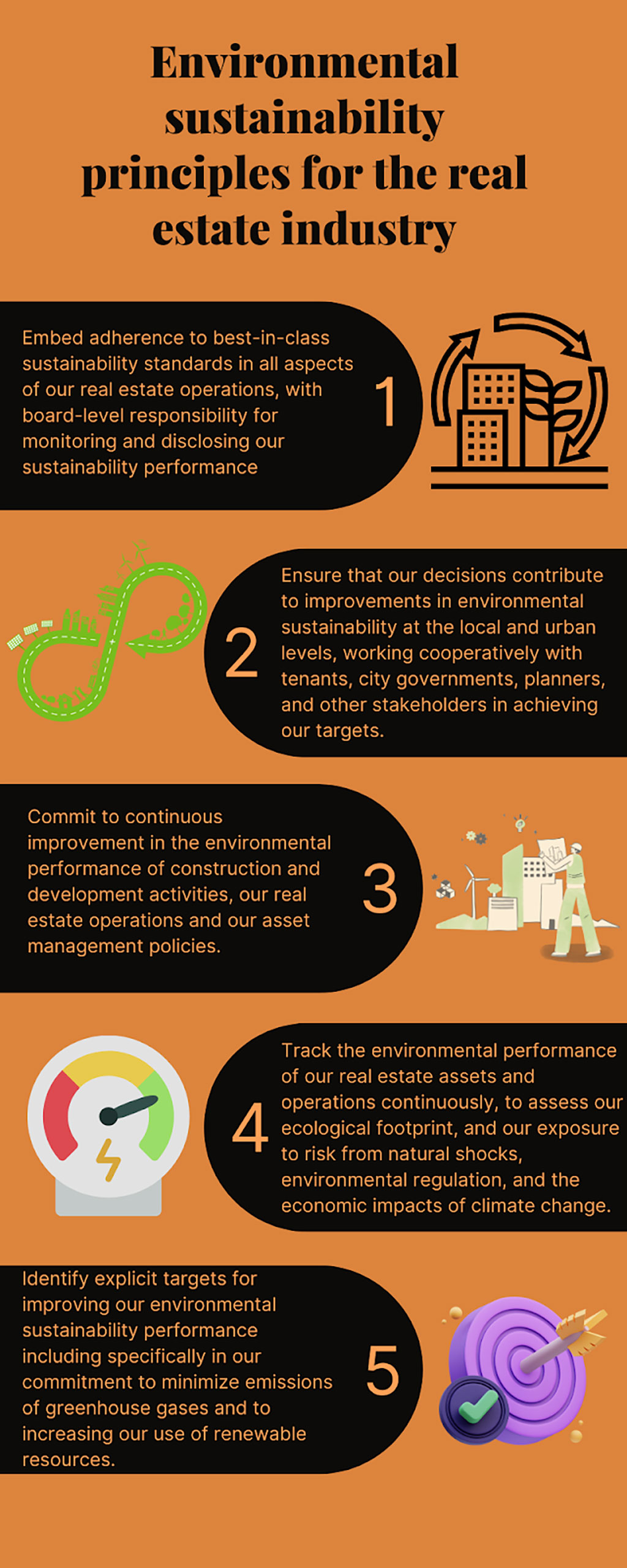
The real estate industry is poised for a profound transformation, fueled by technological disruptions, shifting demographics, and an ever-growing emphasis on sustainability. As we look ahead to the next two decades, it’s essential for investors, homeowners, and policymakers to anticipate the trends reshaping how we live, work, and invest in properties.
This analysis explores the forces shaping the future of real estate, ranging from cutting-edge innovations and evolving lifestyle preferences to regulatory shifts and environmental imperatives. Get ready to gain invaluable insights that will empower you to navigate the real estate landscape with confidence and foresight.
Responding to Urbanization and Housing Demand
Urbanization trends and the growing prevalence of remote work are reshaping housing demand, prompting the need for innovative solutions to address affordability and lifestyle preferences.
Micro-Living Spaces in Urban Centers
As urban migration continues, major cities are experiencing a surge in housing demand, leading to the rise of micro-living spaces. These compact and affordable units cater to the needs of singles, young professionals, and those seeking a minimalist lifestyle, offering a viable solution to the housing crunch in densely populated areas.
Revival of Suburban and Rural Real Estate
Simultaneously, the increasing adoption of remote work and telecommuting is driving growth in suburban and rural real estate markets. With the flexibility to work from anywhere, more individuals and families are opting for larger living spaces and proximity to natural surroundings, fueling demand in these areas.
Regulatory Changes
Regulatory changes play a pivotal role in shaping the real estate market, with potential impacts on zoning laws, tax policies, and commercial real estate strategies.
Zoning Laws and Housing Shortages
To address housing shortages, particularly in urban areas, governments may consider revising zoning laws to allow for higher-density development and mixed-use spaces. These changes could impact property development strategies and urban planning, potentially increasing the supply of affordable housing units.
Engaging law firms in Lubbock, Texas, known for their expertise in small business law and navigating business regulations, can provide invaluable support to real estate developers and investors. These firms offer entrepreneur legal guidance and startup legal support that are crucial for understanding and adapting to these regulatory landscapes.
Tax Reforms and Investment Strategies
Tax reforms and changes in tax policies can significantly influence property investment strategies. Investors may need to reevaluate their portfolios and approaches based on factors such as capital gains taxes, property tax rates, and deductions for mortgage interest and depreciation. Business law in Midland, Texas, and similar locales, becomes a critical asset for those looking to optimize their real estate investments in light of new or anticipated tax regulations.
The Future of Commercial Real Estate
The rise of e-commerce and the shift towards remote work during the COVID-19 pandemic disrupted the commercial real estate sector. As businesses reevaluate their office space needs and retail formats evolve, the demand for traditional commercial properties may wane, prompting a rethinking of commercial real estate strategies and the repurposing of existing spaces.
Legal advisors specializing in startup legal support and navigating business regulations play a crucial role in guiding businesses through these transitions, ensuring their compliance and strategic soundness amidst regulatory changes.
Technological Advancements
The integration of cutting-edge technologies promises to revolutionize the real estate market, from property valuations and market analysis to the buying and selling process itself.
Artificial Intelligence and Machine Learning
Artificial intelligence (AI) and machine learning algorithms are already enhancing the accuracy and efficiency of property valuations and market analysis. By processing vast amounts of data, these technologies can identify patterns, trends, and insights that inform more precise pricing strategies and investment decisions.
Moreover, AI-powered virtual assistants and chatbots are poised to streamline the home-buying process, providing personalized guidance and addressing inquiries in real-time, improving the overall customer experience.
Virtual and Augmented Reality
Virtual reality (VR) and augmented reality (AR) technologies are transforming property showings and inspections, offering immersive experiences that transcend traditional open houses. Prospective buyers can now explore properties from the comfort of their homes, visualizing interior designs, and making informed decisions without physically visiting the site.
As these technologies advance, we can expect more realistic and interactive virtual tours, reducing the time and cost associated with traditional property viewings.
Blockchain and Real Estate Transactions
The advent of blockchain technology is set to revolutionize real estate transactions by providing secure, transparent, and efficient record-keeping systems. Smart contracts on the blockchain can streamline the entire process, from property listings and negotiations to closings and title transfers, reducing the risk of fraud and ensuring the integrity of records.
Sustainable and Resilient Development
Environmental sustainability and resilience are becoming critical factors in real estate development, driven by both regulatory pressures and consumer demand for eco-friendly living spaces.
Sustainable and Green Building Practices
- Incorporating energy-efficient materials and renewable energy sources
- Implementing water conservation measures in new construction
- Reducing environmental impact and long-term costs
- Enhancing property values through sustainable practices
Climate Change and Coastal Properties
- Rising sea levels and severe weather events impacting coastal regions
- Need for resilient infrastructure and adaptive measures
- Influencing market dynamics, risks, and property values in coastal areas
- Prompting changes in insurance markets and risk assessments
Urban Planning for Eco-Friendly Living
- Promoting eco-friendly transportation options and walkability
- Mixed-use developments integrating residential, commercial, and recreational spaces
- Reducing commuting needs and promoting sustainable lifestyles
- Creating environmentally conscious and healthy communities

Economic Factors
Economic factors, such as interest rate trends, housing affordability, and international investment patterns, will continue to influence the real estate market in the coming decades.
Interest Rate Trends and Mortgage Rates
- Interest rate fluctuations directly impact mortgage rates and housing affordability
- Low rates stimulate activity, but rising rates challenge buyers and investors
- Strategic planning needed for the timing of investments
Housing Affordability and Socioeconomic Factors
- Housing affordability is a major concern influenced by income inequality, jobs, demographics
- Rising urban costs necessitate innovative affordable housing solutions
- Ensuring equitable access to homeownership and rentals
International Investment Trends
- An influx of international investment is driving the U.S. real estate market.
- Trend expected to continue due to economic stability, exchange rates, market safety
- Shaping market dynamics and pricing in popular investment hubs
Innovations in Construction and Property Management
Advancements in construction technology and property management software are poised to enhance building efficiency, reduce costs, and streamline operations, contributing to a more sustainable and customer-centric real estate industry.
Construction Technology and Building Efficiency
Innovations in construction technology, such as 3D printing, prefabricated building components, and advanced materials, are improving building efficiency and reducing construction costs. These advancements not only accelerate the construction process but also contribute to energy-efficient and eco-friendly structures.
Property Management Software
The growing importance of property management software for rental and commercial properties cannot be overstated. These platforms streamline operations, enhance tenant experiences, and facilitate data-driven decision-making, thus improving overall efficiency and profitability for property owners and managers.
Co-Living and Co-Working Spaces
The rise of co-living and co-working spaces is reshaping the real estate dynamics, particularly in urban areas. These shared living and working environments cater to the needs of millennials, remote workers, and those seeking affordable and flexible housing solutions, presenting new opportunities for real estate developers and investors.
Demographic Shifts: Evolving Housing Preferences
Demographic shifts, including changing family structures, an aging population, and the preferences of younger generations, will continue to shape housing demand and market trends in the coming decades.
Family Structure and Housing Needs
- Increase in multi-generational households and diverse living arrangements
- Driving demand for larger, more flexible living spaces
- Influencing home design and real estate development
An Aging Population and Senior Living
- Demand for senior living communities and age-friendly housing options rising
- Catering to specific needs: accessibility, on-site healthcare, community amenities
- Promoting active and social lifestyles for seniors
Millennial and Gen Z Housing Preferences
- Prioritizing sustainability, walkability, access to amenities
- Favoring urban living and mixed-use developments
- Aligning with the values and lifestyles of younger generations
Conclusion
The real estate industry is going to face sweeping changes in the coming years due to technological advancements, sustainability imperatives, and shifting demographic preferences. Over the next 20 years, stakeholders must prioritize innovation, environmental resilience, and an acute understanding of evolving housing needs. Adapting to these trends will be crucial for investors, developers, and policymakers to thrive and meet society’s changing demands within the real estate industry.
Frequently Asked Questions
- How will climate change affect real estate values, especially in coastal areas? Climate change risks coastal properties through rising sea levels, and severe weather, impacting insurance costs, market value, and relocation needs.
- What role will technology play in the buying and selling process for properties? Technology is transforming buying/selling with virtual tours, AI valuations, blockchain streamlining transactions, and record-keeping for efficiency.
- Can we expect a shift towards more affordable housing solutions in the coming years?
Yes, affordable housing solutions like micro-units, co-living, and zoning changes for higher-density development are expected.